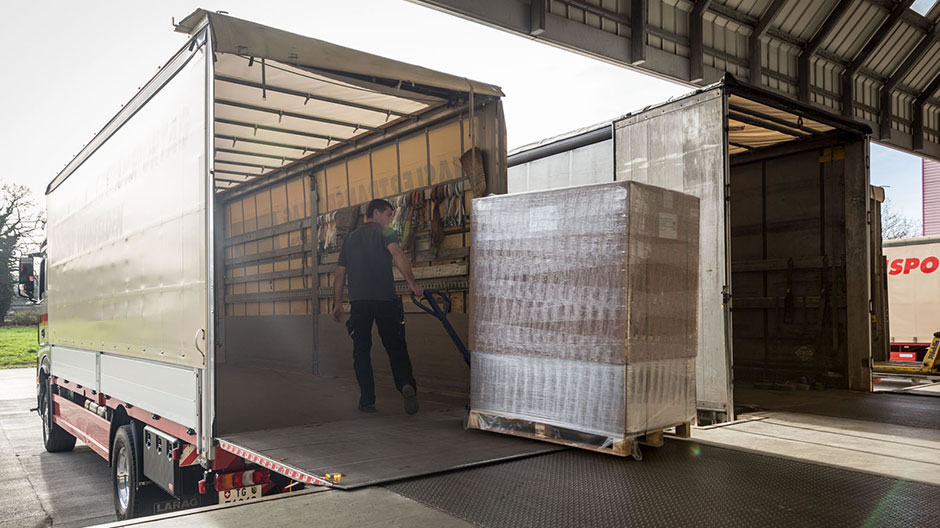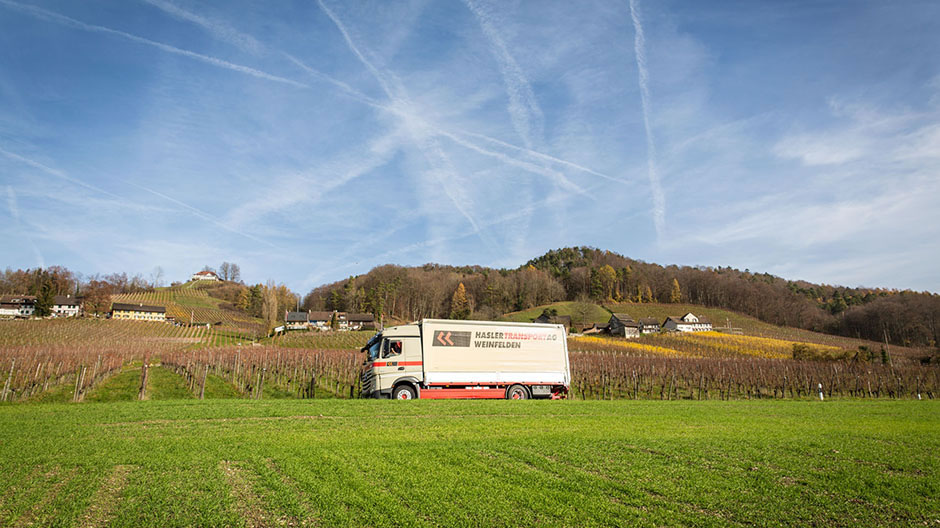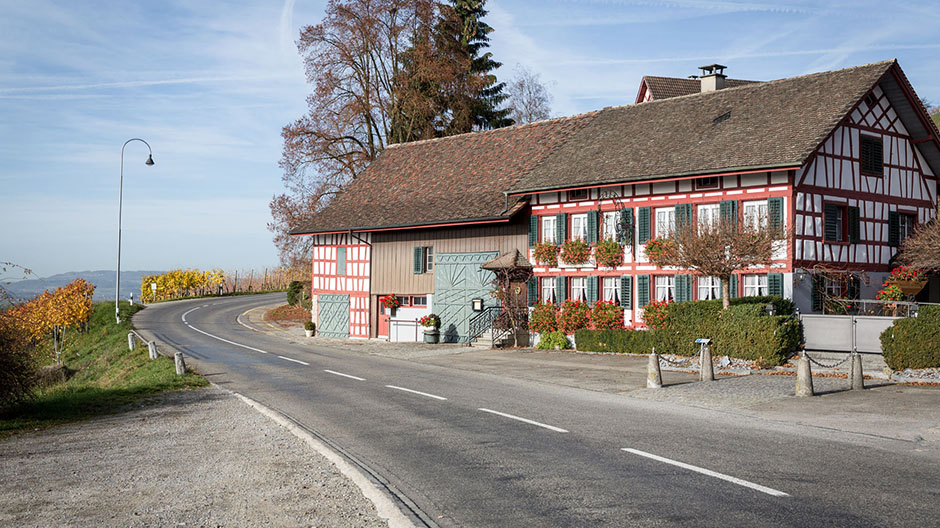
Predictive Powertrain Control retrofit for the Actros
Service
First-class after-sales service and a focus on economy, that’s the recipe of success for Hasler Transport AG. To achieve an even lower consumption figure the Swiss company has retrofitted seven Actros trucks with Predictive Powertrain Control. This saves more than 5% in fuel, despite a comparatively low share of long-distance work.

Evaluated in detail. Managing director Bruno Lusti (r.) and driver Roger Walser take a look at the consumption analysis.
Cardboard boxes full of aluminium cans, along with ergotrainers and small tubs of foam cleaner, all safely packaged on pallets. “We essentially transport everything, with the exception of bulk goods and animals,” says Roger Walser. As he speaks, a transport cradle next to him loaded with half a dozen moto-cross bikes is pushed through the transhipment warehouse. Walser is a driver at Hasler Transport AG. The 45 trucks in the fleet of the haulier from Weinfelden im Thurgau, a stone’s throw away from the southern short of Lake Constance, operate throughout Switzerland. They usually carry general cargo. “We pick up the goods at the customers’ premises, tranship them here and deliver them next day at the latest,” says Bruno Lusti, one of the managing directors of the company with its 75 employees.
As opposed to Germany, the general cargo business is still robust, the manager with four-and-a-half decades of experience in transport and logistics points out. Nonetheless, sustained success requires the maximum efficiency of each individual company. “A central element of control is fuel consumption – and lower consumption, of course, also protects the environment,” says Lusti.









Hasler recently secured an additional pillar of support in this field in the form of Predictive Powertrain Control, the anticipatory cruise control system from Mercedes-Benz. It further reduces the consumption level of the already economical Actros by linking GPS data with topographic maps and Mercedes PowerShift 3. On almost 300 000 kilometres of long-distance roads, the system can integrate a driving style adapted to specific routes into the automation process. For example, by using the peak momentum gained on downhill gradients or throttling back in good time when cresting hills.
“Retrofitting at our service partner only took a few hours in each case,” says Lusti. And, above all, the consumption of the trucks fitted with Predictive Powertrain Control has been lowered to the desired extent. “Our monthly evaluations show that the trucks manage with an average of over 5% less fuel.” An excellent result, last but not least with an eye to the rather low share of long-distance roads in the total number of trips in Switzerland. In view of the company’s annual fuel intake so far of 700 000 to 800 000 litres, the investment pays off. “No doubt about it, the system has a future!”
Roger Walser’s Actros also has Predictive Powertrain Control on board. “I make extensive use of it,” he says. “Here in Switzerland, the long-distance roads are not excessively hilly thanks to the many tunnels. Nevertheless, the system has a noticeable impact.” The driver is on his way to a customer located a few kilometres from the company’s head office in Weinfelden. He will be loading up his Actros there with office furniture. Furniture deliveries including installation are becoming increasingly important for Hasler Transport AG. “You simply have to offer a little more than the others!” Today’s trips lead to a location near Geneva. That’s just under 350 kilometres, during which the predictive cruise control system will be lending a helping and fuel-saving hand.
Predictive Powertrain Control retrofit.
Predictive Powertrain Control is available as a retrofit for almost all Actros, Antos and Arocs trucks. The most important prerequisites are registration of the vehicle as new from September 2012 and the fully automated transmission Mercedes PowerShift 3. The retrofit package mainly consists of a control unit, a GPS antenna and a special set of cables. The installation at a Mercedes-Benz Dealer takes, depending on the cab variant, approximately two-and-a-half hours. Acceptance by a technical inspection organisation such as Germany’s TÜV is not required.
Photos: Sebastian Vollmert


Comment
Please log in to post a comment.
No comments yet